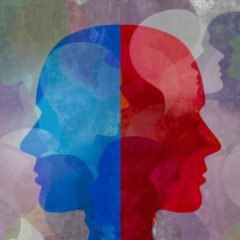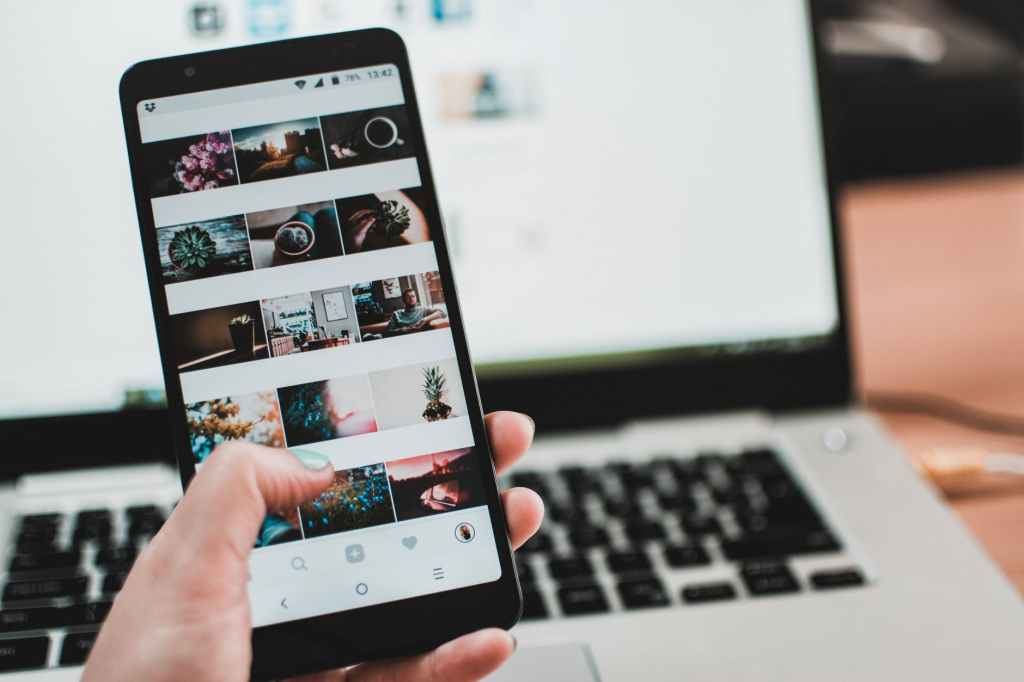“People who smile while they are alone used to be called insane until we invented smartphones and social media.”
– Mokokoma Mokhonoana
Not entirely or fully accurate, but the damage has been done. Forget the needle. In this day and age, it’s more like TikTok and the damage done.
Without doing any research on the topic, I am sure there has been a multitude of tests and studies conducted to compare the effects of drugs on the human brain to that of social media on the human brain. It’s quite clear neither is truly healthy for anyone (you can decide which is worse), but what direct effect does social media and its use have on our mental health and overall psychological well-being?
In 2021, there were around 3 billion active monthly users of various social media, and that only continues to grow. It shows that if it is indeed a problem, it’s not going away anytime soon.
Comparing the problem to being one “as big as climate change”, Facebook whistleblower Frances Haugen leaked thousands of documents that showed Facebook knew the harm it could cause as a social media platform and did nothing about it. Money above all else. Always. Thanks, Zuckerberg.
THE SCIENCE
One study conducted shows that “companies use mechanisms in our brain to hook us on social media.” A typical social media platform’s initial goal is to ultimately “hook” us, which in turn gives them a serious form of complex control. There’s also significant proof to suggest that irresponsible social media practices can lead to anxiety, depression, sleep disruption, and anti-social behavior.
As mentioned before, I knew there were obvious ramifications to us humans by the irresponsible, overuse of social media – I just never knew what they were specifically. I would have never initially guessed the correlation between social media use and anxiety and depression. It makes perfect sense, though. Sometimes you just need to see things through a different lens before fully understanding the scope of the matter.
“Social media is basically a way to drugify human connection,” Anna Lembke, MD, said. “One of the ways our brain gets us to make those connections is [to] release dopamine. Things that are addictive release a lot more dopamine in the brain.”
According to Lembke, the more we trigger that intense pleasure response we get from social media, “the more we crave it.” It begins to take hold like a drug, to where you continually need more and more of it to reach one’s desired (or required) level or “high”, for lack of a better word. It’s like gambling because you always return when your odds are very low. It is a constant need for validation by way of the internet which can quickly get out of control.
THE DANGERS
Other than the ones already mentioned, the dangers of the overuse of social media can range from emotional to mental to physical. One of the more significant aspects of the damage being done stems from sleep issues caused by social media use. The effects that sleep, or a lack thereof, can have on both mind and body are scary and dangerous.
Recent studies suggest people who frequently use social media feel more depressed. Social media can make one feel isolated and alone. One study of young adults in the U.S. found that “occasional users of social media are three times less likely to experience symptoms of depression than heavy users.” However, the loneliness created by the isolation can cause depression and anxiety in anyone.
Another danger posed is the damage caused by how it can boost one’s self-esteem. Yes, you read that right. It’s the way people seek out that self-esteem boost that is damaging. This is done by commenting on or posting something with the goal of receiving some sort of unhealthy positive feedback. The search for confirmation by means of feigned or exaggerated circumstances is unhealthy in and of itself. The repercussions of this style of self-gratification can be serious and can also lead to severe psychological problems.
Online bullying is another possible danger. This could take shape in the form of general bullying, by use of offensive or insulting language, or any number of other hurtful behaviors. When this behavior happens on a social media platform, it is widely viewed and even shared. This makes it nearly impossible to reduce the impact.
YOUTH IS TRAGEDY
These are just some of the things that can be negatively impacted by social media. So, why do users keep coming back?
“When the outcome is unpredictable, the behavior is more likely to repeat,” Jacqueline Sperling, PhD, said. “One does not know how many likes a picture will get, who will ‘like’ the picture, and when the picture will receive likes. The unknown outcome and the possibility of a desired outcome can keep users engaged with the sites.”
This is especially true with teenagers and young people. One of the reasons is the fear of missing out. Say, you’re not on social media but all your friends are. This can create a sense of being left out or of missing out on something others in your peer group get to experience. However, the younger you are when you start, the stronger the impact will be down the line.
Sterling also points out that a filter attached to the digital world can cause confusion amongst young people. It can blur the line between what’s real and what’s not.
“Middle school already is challenging for students with all of their developmental changes,” Sterling said. “As they go through puberty, they’re tasked with establishing their identity at a time when the frontal lobes in their brains are not fully developed, and there is a lack of impulse control. All of this happens while their relationships with peers become more important. It’s a very vulnerable population to have access to something where there is no stopgap before they post or press the send button. I think that’s something of which to be mindful.”
SUGGESTIONS FOR PROTECTING YOUR MENTAL HEALTH
Below are a few suggestions to maintain mental health while using social media:
- Limit your time on social media platforms. Some platforms, such Apple and Google, have settings to help you do this automatically on your phone.
- Consider what sites and profiles you visit; if they make you feel bad, unfollow them
- Before you post something about yourself or someone else, consider if you would make this comment in an in-person setting
- Remember that what you post will be very hard to take back or remove
- Remember that what people post, or what you see, may not be honest or real presentations of their experiences or lives
- Leave or unfollow a profile/page/site if it is making you feel worse
- Report posts that are hurtful or making you worried
- Tell an adult you trust – a parent, teacher, school counselor – immediately if a friend is posting content that worries you or suggests that they may be in a serious situation
As someone who uses certain social media platforms professionally, I know they can be very useful resources. I am not someone who uses social media for personal use very often; I have 170 friends on my personal Facebook – not because I’m antisocial, but because I only accept friend requests from people I actually know. This makes it easier to stay outside the boxes constructed when it comes to my usage of social media.
That being said, the dangers of social media to one’s mental health can be disastrous and long-lasting. However, we do live in a world where it’s hard to “unplug” because of the convenience of advanced technology. It’s everywhere. And the risk will always be there, too.
It’s not impossible to live a positive and balanced life on social media. However, it’s through discipline and insight that true personal awareness can be obtained, which is necessary.


Leave a comment